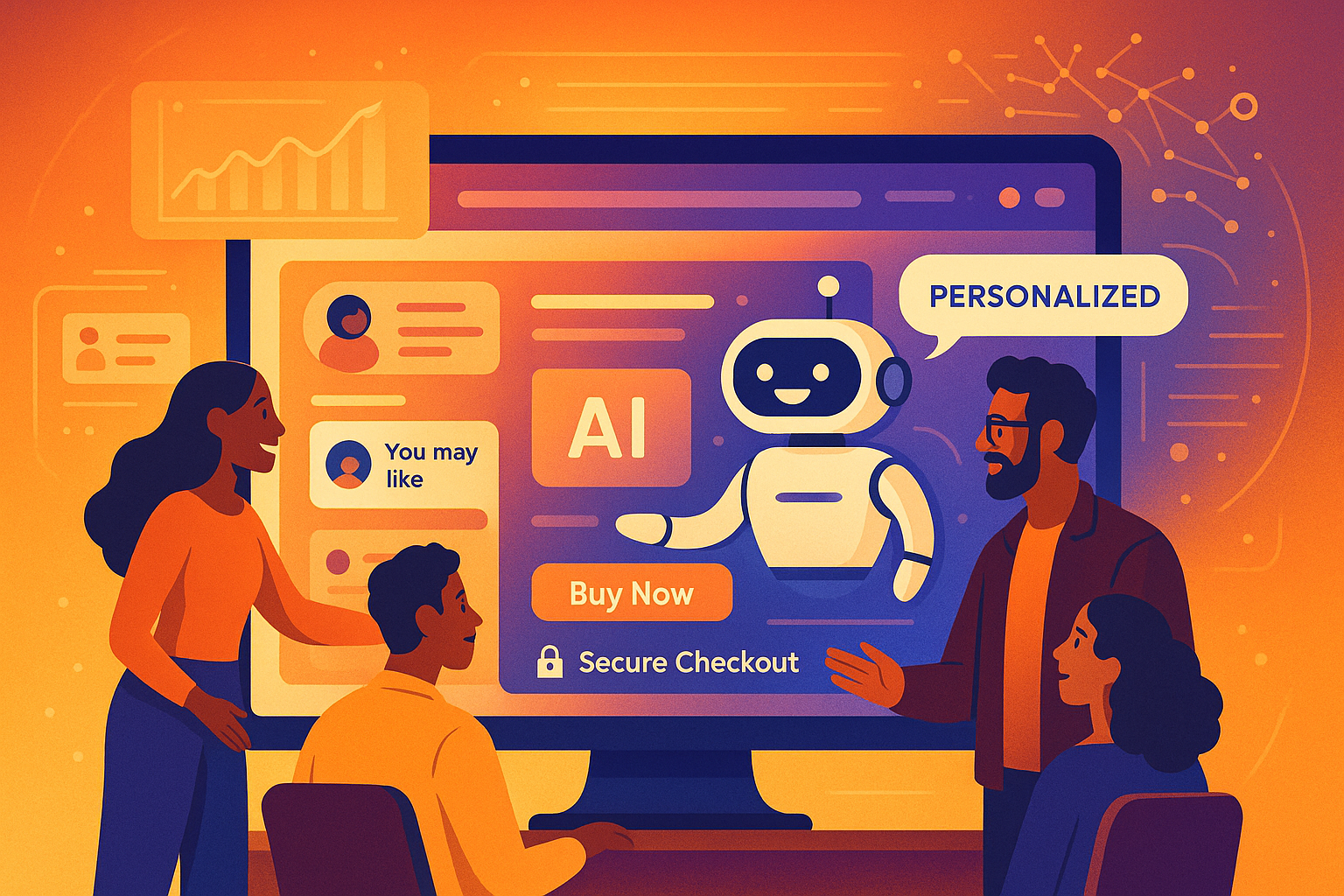Turning Visitor Skepticism into Loyalty: The Role of AI in Digital Marketing

Turning Visitor Skepticism into Loyalty: The Role of AI in Digital Marketing
Introduction
In a digital landscape where customer trust is paramount, AI-powered websites are changing the game. By transforming visitor skepticism into durable loyalty, businesses can not only enhance engagement but also drive conversions effectively. Leveraging innovative technologies—like personalized chatbots, adaptive user interfaces, and data-driven insights—helps them foster meaningful connections with their audience while tackling common frustrations.
Understanding Visitor Skepticism
Skepticism among website visitors often stems from psychological factors that can hinder their engagement:
- Slow or impersonal responses to inquiries can lead to frustration.
- Poor usability, evident in confusing navigation and slow-loading pages, can deflect potential customers.
- Ambiguity in value propositions leaves users questioning why they should trust a brand.
- Data privacy concerns loom large, making clarity and transparency essential.
Addressing these pain points is where AI comes into play, providing swift, relevant, and personalized experiences that foster trust and demonstrate a company's commitment to customer satisfaction.
The Power of AI Technologies
Personalized Chatbots
At the forefront of AI technology are modern, sophisticated chatbots. Available 24/7, these chatbots leverage natural language processing to manage nuanced inquiries, delivering responses that are not only context-aware but also feel distinctly human. By retaining visitor history, they enable conversations that feel tailored to individual users, enhancing their journey. For instance, brands utilizing advanced chatbot capabilities have reported significant boosts in user satisfaction and decreased bounce rates—as visitors receive timely answers to their queries, feelings of doubt and abandonment decline.
Adaptive User Interfaces
Another transformative feature of AI technology is the deployment of adaptive user interfaces. These interfaces can dynamically adjust aspects of a website, including content and calls to action, based on real-time assessments of user behavior and preferences. Tools sophisticated enough to conduct AI-driven A/B testing identify the most effective website layouts and messaging, optimizing for conversion with minimal input from human operators. By creating a more streamlined and enjoyable experience, businesses can guide visitors smoothly along their customer journey.
Data-Driven Insights and Predictive Analytics
Finally, machine learning models excel in uncovering conversion bottlenecks and predicting user needs. Harnessing predictive analytics allows businesses to score conversion probabilities, enabling marketing teams to prioritize leads that are most likely to convert. Companies that apply AI to their conversion optimization processes enjoy notable results—an average increase of 25% in conversion rates and a 15-20% rise in customer satisfaction showcase the significant benefits.
Real-World Success Stories
Consider how Netflix employs AI-driven A/B testing continually to refine its interface and recommendations, maximizing engagement and boosting user trust. Marketo and HubSpot stand out with their AI-powered scoring systems that streamline the lead prioritization process, yielding measurable increases in both conversion rates and customer satisfaction.
Trends Shaping User Behavior (2023-2025)
As we look toward the next few years, several trends stand out:
- Personalization will become a baseline expectation, with users wanting adaptive experiences reflective of their preferences.
- Trust signals take center stage—websites that prioritize transparency and data security are likely to earn higher levels of customer loyalty.
- Immediate assistance from chatbots is evolving into an essential feature for a positive user experience, particularly in e-commerce and services sectors.
Actionable Strategies for Businesses
To capitalize on these opportunities, here are some clear strategies tailored for business owners, marketers, and developers:
- Integrate advanced AI chatbots to provide real-time, human-like support tailored to individual needs.
- Deploy adaptive user interfaces that respond to visitor behavior, adjusting content and calls to action in real-time.
- Utilize AI-powered A/B testing to streamline website optimization, helping eliminate guesswork in conversion strategy.
- Employ predictive analytics to focus marketing efforts on leads with the highest conversion potential.
- Showcase trust signals such as transparent privacy policies and secure checkout features to help alleviate visitor concerns.
- Monitor user behavior continuously through heatmaps and session analytics to refine and enhance the digital experience further.
These strategies, grounded in the latest technologies and insights, empower businesses to transform visitor skepticism into lasting loyalty. By embracing AI, companies can not only improve immediate engagement and conversion rates but also establish enduring relationships with their customers, ultimately delivering significant long-term performance gains.